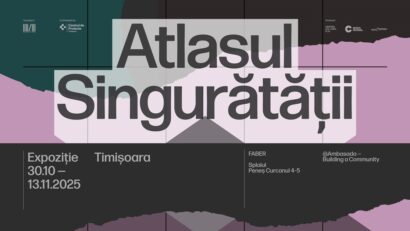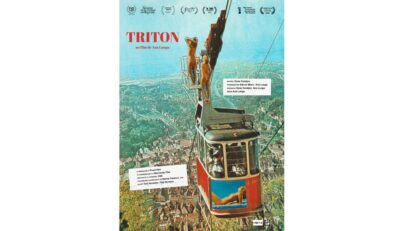Romanian Culture Day 2019
Like every year, Romanian Culture Day, which coincides with the anniversary of the birth of the poet Mihai Eminescu, who is considered by critics as the most important Romanian literary figure, was celebrated at different venues across the country

Monica Chiorpec, 26.01.2019, 14:50
The event hosted by the Romanian Athenaeum in Bucharest brought together cultural figures and politicians, all of whom discussed the role of arts and culture beyond the national dimension.
The President of the Romanian Academy Ioan-Aurel Pop underlined that Romanian culture is first and foremost a culture that forms part of the big European culture: “The idea of a national culture can only be discussed in a universal context. In our case a European context, on which this culture has always had a pulse of and within those movements it has always been part of constantly, at least starting with the Renaissance. Secondly, the national culture also has an essential historical dimension without which it cannot function, without which it loses its status and becomes dissipated within other cultures or simply dies with the people that created it.”
In his address, the President of the Romanian Academy Ioan-Aurel Pop also mentioned the great Romanian cultural institutions without which it would have been impossible to make culture known to the public: “Since the Romantic era, European movements have become increasingly numerous, increasingly intense, and some of them, increasingly eccentric, but all of them, and sometimes without a chronological delay, have had a counterpart in Romanian culture. The synchronisation of Romanian civilisation with western civilisation […] has been mostly achieved through culture. European cultural production was accompanied by the creation of cultural institutions that were more in tune with modernisation, from libraries and museums to high schools and universities, from the Transylvanian Association for the Literature and Culture of the Romanian People to the Romanian Academy. However, the good running of these institutions was achieved through the great monument represented by our language. This language has played the role of a catalyst, a coagulator, as is also the case today.”
The Romanian President Klaus Iohannis went up on the stage of the Athenaeum to talk about cultural values, recalling great Romanian figures whose cultural output was acknowledged at European level: “When we speak about Romanian culture we have to speak about its essential role in our country’s evolution to modernity. This process has led to the affirmation of the great figures of Romanian literature, music and fine arts on the world stage. The works of George Enescu, Constantin Brancusi, Eugen Ionesco, Emil Cioran and Tristan Tzara have demonstrated the compatibility between tradition and modernity and are proof of the encounter between our culture and the European spirit and international artistic values. It is commendable that the new generations of creators in literature, film, the visual arts and the performing arts have the capacity to continue to take advantage of this dialogue between the national and the universal, with exceptional results.”
The national dimension of the Romanian culture is naturally manifested, like in any other example in history, mainly through the language, which has often represented the most powerful instrument of national aspirations in the past as well as today.
Klaus Iohannis: “2019, the year of the Romania-France cultural season, of the Enescu Festival and the Europalia Festival, great international cultural projects held under the high patronage of the president’s office, are a unique opportunity to reaffirm Romania as a space of artistic achievement. We celebrate the arts and culture on the anniversary of Mihai Eminescu’s birthday also because the Romanian language has represented, beginning with the Enlightenment, the argument and foundation of our aspirations of national unity and social progress. Before being the manifestation of a political vision and the result of people’s commitment, national unity was achieved through the Romanian language.”
The literary critic Eugen Simion, the President of the Philology and Literature Department of the Romanian Academy has given a talk entitled “Culture — an estate of the realm?”
Eugen Simion: “I think this is the true power of culture: a weapon that gives a people the strength to survive throughout history. A silent weapon, manifested along historical generations, to ensure the future of the identity of a nation, in a history full of unknowns. A culture is however a power that is marginalised, always put to the test and sometimes challenged in its identity and its symbols, and also a phenomenon that battles with the laws of the market economy. Will Romanian culture, which has been through so much, resist, survive? As long as the Romanian language exists, and as long as we have poets like Eminescu, Arghezi, Blaga and Nichita Stanescu, historians like Nicolae Iorga and literary critics and historians like Eugen Lovinescu and George Calinescu, the Romanian culture will continue to be a silent, secret power, our finest and most efficient form of diplomacy. It will remain our best form of defence in history.”
The foyer of the Romanian Athenaeum also hosted a photo-documentary exhibition initiated by the Romanian Academy Library in partnership with the National Museum of Romanian Literature. Visitors were able to admire one of the most valuable manuscripts by Eminescu from the collection of the Romanian Academy Library, the so-called manuscript no. 2261, which contains the “Legend of the Morning Star”, as well as a facsimile edition of “The Manuscripts of Mihai Eminescu” in 38 volumes. The project was carried out under the coordination of Eugen Simion.






























